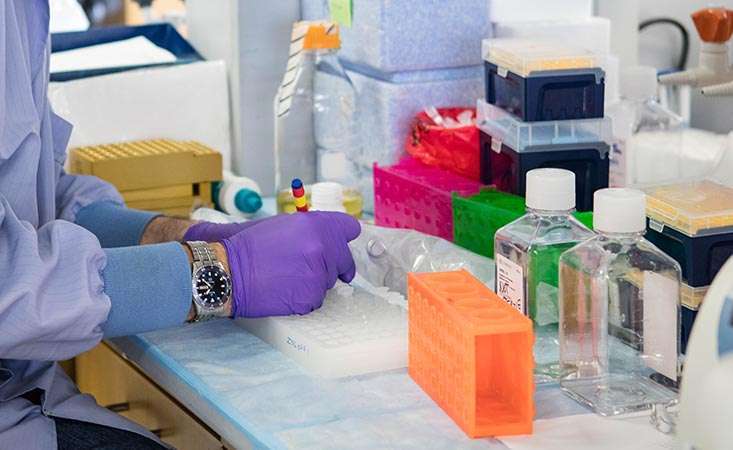
New study shows promise to detect pancreatic cancer earlier.
In a study recently published in the prestigious Journal of Clinical Oncology, researchers investigated the accuracy of a biomarker panel developed by the company Immunovia, based in Lund, Sweden, to detect early-stage pancreatic cancer.
To date, there is no standard early detection strategy to find pancreatic cancer before traditional diagnostic tools.
However, researchers across the country and the world, including those funded by the Pancreatic Cancer Action Network (PanCAN), are striving to discover ways to detect the disease in its earlier, more treatable stages. In particular, early detection could allow more patients to be eligible for potentially curative surgery.
In the current study, researchers from Immunovia partnered with academic and clinical scientists from Sweden, Denmark and the United States. The U.S. cohort was co-led by PanCAN grantees Brett Sheppard, MD, and Rosalie Sears, PhD, recipients of a 2017 Early Detection Targeted Grant from the organization. Sears is also a member of PanCAN’s Scientific and Medical Advisory Board.
As described in a press release issued by the company, the Immunovia test, consisting of 29 biomarkers (measurable biological clues), was found to have 96 percent accuracy to differentiate blood samples from patients with pancreatic cancer from those of healthy individuals.
The initial studies were conducted in the Scandinavian countries and then validated in the United States. In total, more than 1,700 samples were analyzed.
Blood samples were taken from patients with varying stages of pancreatic cancer, people with chronic pancreatitis (inflammation of the pancreas) or intraductal papillary-mucinous neoplasm (IPMN, a precancerous abnormality that sometimes develops into invasive cancer), in addition to healthy individuals as a control.
“What differentiates this effort from previous blood test-based early detection studies is its international scope and the encouraging results in patients with early stages of pancreatic cancer,” said Lynn Matrisian, PhD, MBA, chief science officer at PanCAN.
“Before this can be adopted as a validated early detection test, though, prospective (forward-looking) studies would have to be conducted.”
Prospective studies entail monitoring individuals considered at high risk for developing pancreatic cancer and determining whether a test can detect the disease before conventional diagnostic tools. Some pancreatic cancer risk factors include family history and diabetes, which can also be a symptom of the disease.
The team at Immunovia launched PanFAM-1, a study aimed to use their biomarker panel to detect pancreatic cancer earlier in individuals who are at a high risk for the disease, based on their family history or genetic links.
Additional efforts are underway to detect the disease earlier in people based on family history, presence of pancreatic cysts or individuals with new-onset diabetes over the age of 50.
“There is currently a great deal of attention and momentum focused on developing an early detection strategy for pancreatic cancer,” Matrisian said.
“We’re encouraged to see several efforts, including the Immunovia test, that are now advanced enough to be tested in individuals at high risk for developing pancreatic cancer.”














